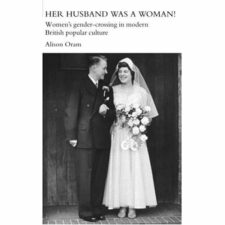World War One’s history is full of lively women longing to support (as well as oppose) the war effort. And in many cases they went off and did so by themselves after rebuffs from high-up chaps who declared ‘We don’t want women’s help’. But over two years after the war started, and after many thousands of men had been killed, finally some men saw sense: they’d have to accept women workers. But only in certain roles.
So on March 11, 1917, the commander-in-chief of the British Army, Field Marshall Sir Douglas Haig, capitulated. This was the man whose handling of the British portion on the Somme from July to November the previous year had caused great controversy. There had been an extremely large number of casualties – 420,000 – and only seven miles had been gained. The 56-year old son of the famous Haig& Haig whisky distillery, who was seen to be unimaginative and inflexible, wrote to the War Office this day 83 years ago, saying:
‘The principle of employing women in this country [France] is accepted and they will be made use of wherever conditions admit.’
And so the founding of what became the Women’s Army Auxiliary Corps (WAAC), the first official women’s service organisation, began. However, Haig’s letter shows that he had many concerns about this major step. He was anxious because he didn’t think these women had enough strength to do much. Yes, he would let them be cooks, but surely they didn’t have the muscle to handle the big carcases that would be used to make stews. The father of the two girls (Alexandra and Victoria) and the husband of a Lady-in-Waiting to the Queen, he was also concerned about morality. Haig said women would not be able to work in clothing storerooms, because men had to undress and change their clothes there. A female presence in such circumstances would be ‘unacceptable.’
Ahem… doesn’t this rather ignore the many thousands of nurses who were routinely handling men’s naked bodies without any ill-effects? I think so.
But anyway, women flocked to become WAACs. Far more applied than anyone had expected. And the WAAC went on to be a force 57,000 –strong. Women worked as telephonists, clerks, waitresses, and cooks. Not only were they paid less than Army men doing exactly the same tasks, they also didn’t have full military status.
Their job titles reveal the way the way women were cast as civilians. This rather puzzled me when I first read archival material at the Army Museum library. What were all these civilians doing there, I thought, as I looked down lists of the various women being escorted across the Channel? Then I realised that women were being formally identified as ‘not really soldiers.’ So, for example, ‘Officials’ (officers) were called ‘Controller’ and ‘Administrator.’ Other ranks were called Forewoman (not Sergeant), Assistant Forewoman (not Corporal) and Worker (not Private).
Although deemed ‘non-combatant’, many of the 9,000 who went to France and worked with the British Expeditionary Force faced shells from heavy artillery and bombs dropped by German planes. A number were killed.
The WAACs were renamed the Queen Mary’s Army Auxiliary Corps (QMAAC) in April 1918 and disbanded in 1921. Since that time historians have argued that Haig had killed as many of his own men as Stalin and Hitler put together. In 1998 there were moves to take down his statue. The name of his wife, Dorothy Haig (nee Vivian) still lives on in the Lady Haig Poppy Factory, which in 1926 started to make poppies for Scotland at her behest. Local Girl Guides gathered laurel leaves, and moss to make wreaths. Today 33 mostly disabled ex-servicemen produce 4.5 million poppies and 8,000 wreaths a year there. It’s about a ninth of the output of the Surrey factory.
I myself am opposed to militarism and feel angry with Haig. So I prefer to honour the dead by wearing a red poppy, but alongside a white peace poppy, available here.
Jo Stanley is an expert on gender and the sea, who is currently researching WAAC, travels for her forthcoming book, Risk! Women on the Wartime Seas, Yale University Press. See her website and her blog.

